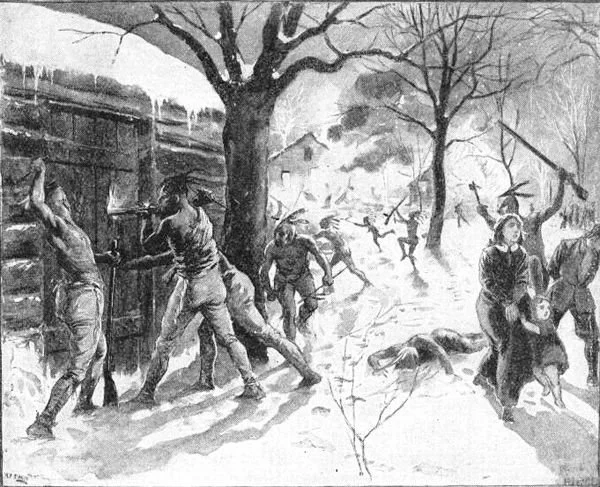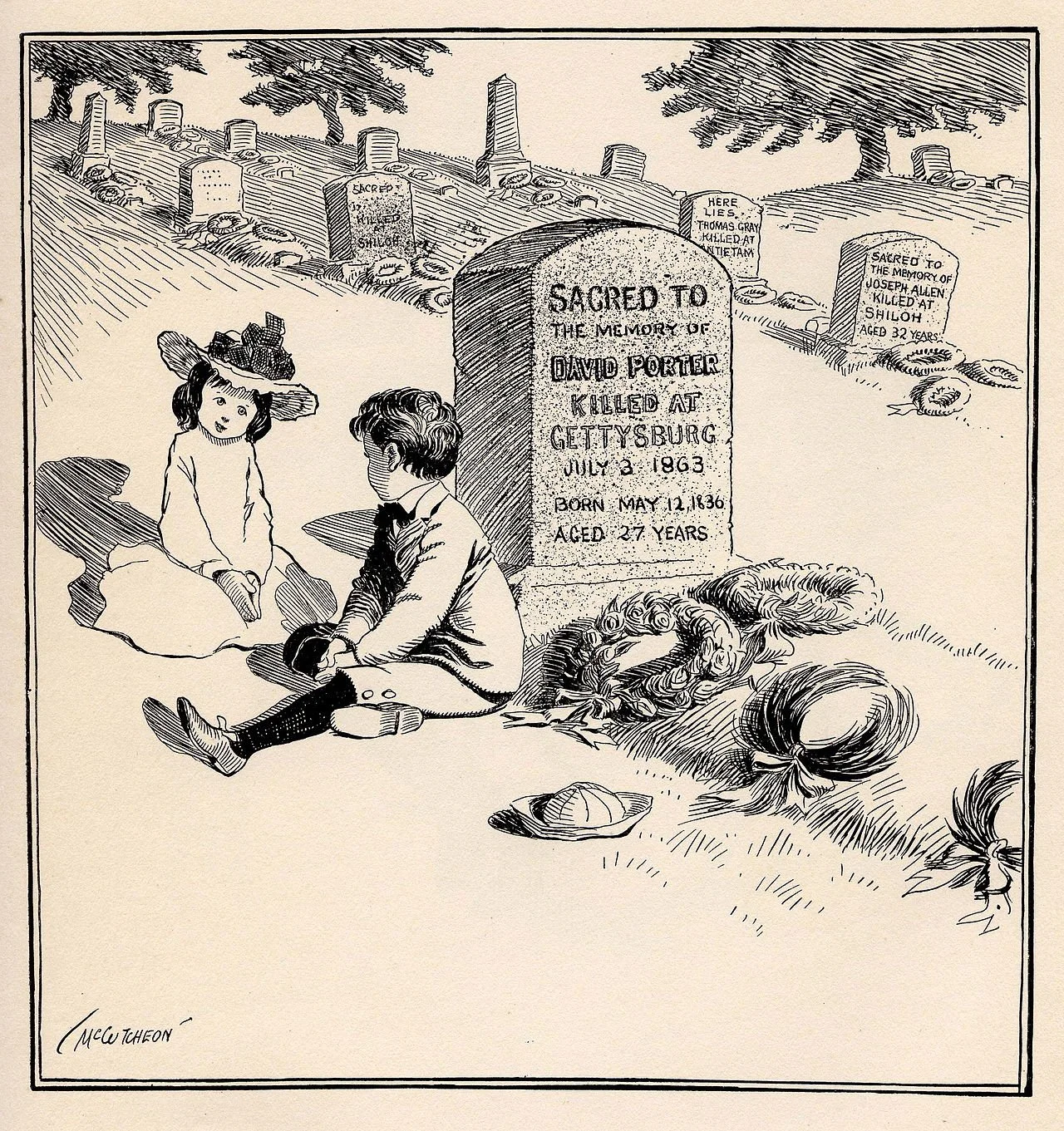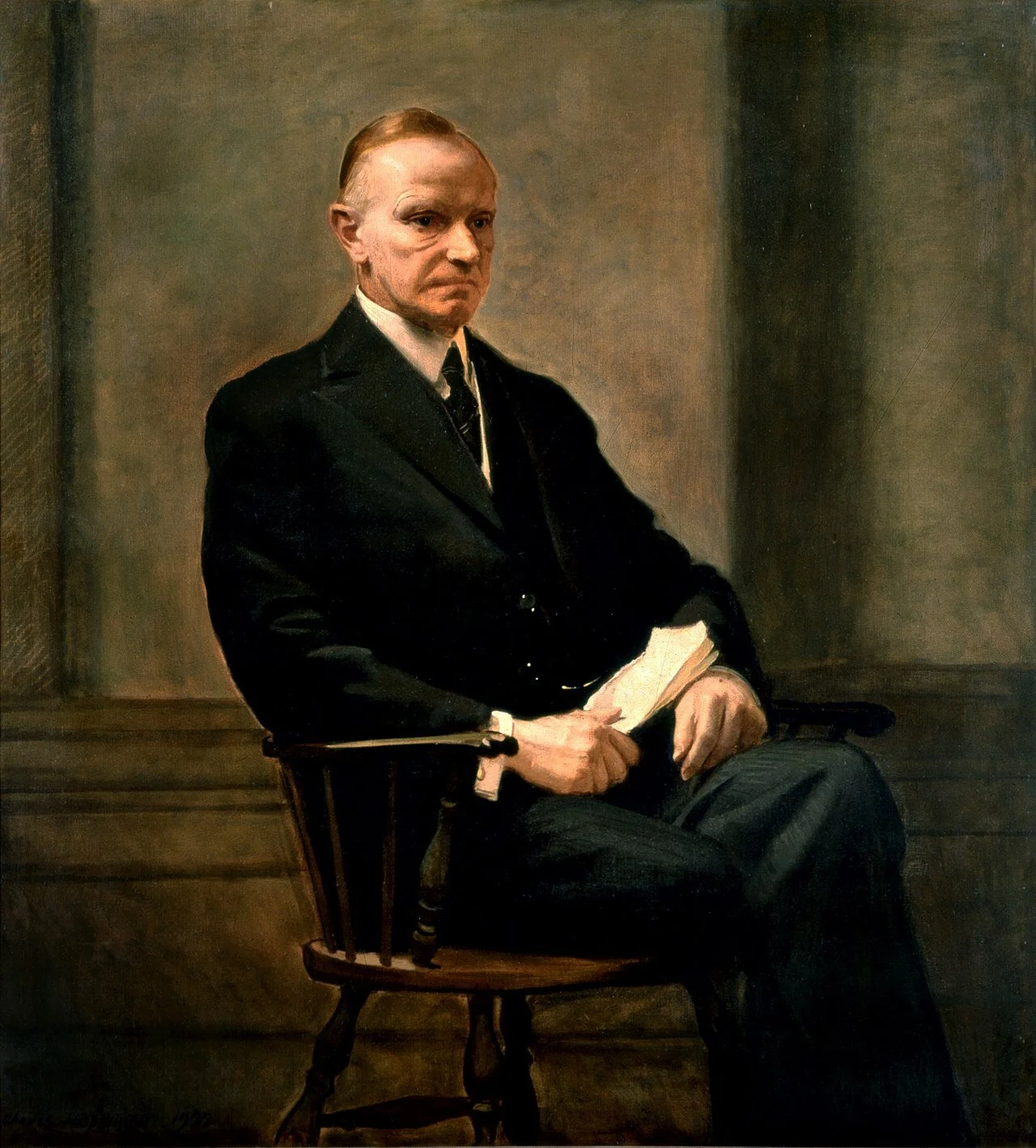Official portrait of Calvin Coolidge in the White House, by Charles Sydney Hopkinson
"The business of America is business."
-- Calvin Coolidge, president from 1923-1929
Connecticut Gov. Ned Lamont likes to talk shop with business people. A Hartford Courant story, “Gov. Ned Lamont tells Connecticut businesses he’s ruling out ‘broad-based’ tax increases,” will not please Democrat progressives in Connecticut who seem fully prepared to eat businessmen and businesswomen for lunch. The large and overbearing contingent of progressives in the state's Democratic Party caucus cannot be satisfied with sentiments such as this: “I’ve been pretty clear. I have no interest in broad-based tax increases,” Lamont told president of the Connecticut Business and Industry Association (CBIA) Chris DiPentima. And, he hastened to add, “Every governor, Republican or Democrat since, or including, Lowell Weicker, has done that and it did not solve the problem.”
The problem is, of course, lavish, continuing, long-term spending -- and consequent increases in taxes. Taxes in Connecticut have been permanent, while cost-cutting measures have been temporary; this is because the force driving spending is more powerful than the force that would, were it applied, reduce long-term costs permanently. If one discharges deficits by reducing such costs, tax increases would be unnecessary. And the prospect of unnecessary tax increases would reduce the influence of – just to pick one snout at the public trough – Connecticut’s imperious public employee unions. But reducing the influence of the state’s public employee unions would deprive Democrats of funds and worker bees they rely upon to win elections.
Lamont was not prepared to tell DiPentima that, during the rest of his first term as governor, he would deploy his considerable resources to remove SEBAC, a union political organization and lobbying group that some have characterized as Connecticut’s fourth branch of government, from collective bargaining with the state on salary and pension contracts. Some have argued that such contracts give union leaders a Keystone pipeline to the wallets of Connecticut taxpayers, in the process shifting from the General Assembly to Connecticut courts control over a taxing authority that belongs constitutionally to the legislative branch of government. Why aren’t state employee salary and benefit packages set unilaterally by the General Assembly, which alone is constitutionally authorized to take in and disperse tax money? (SEBAC, by the way, stands for State Employees Bargaining Agent Coalition.)
One may be certain that this is not a discussion Lamont will be having anytime soon with President Pro Tem of the Senate Martin Looney or Speaker of the House Matt Ritter, neither of whom are disposed to cut off their union related campaign funds to satisfy their less binding constitutional responsibilities.
Over a long period of time in Connecticut, dating possibly from the unlamented Lowell Weicker administration, Machiavellians within the Democratic Party have discovered that it does not matter a whit whether they employ a Big Stick on the backs of business men and women or whether such contributors are induced to open their pockets to Democrats through special preferments; both methods may be deployed at the same time without diminishing campaign contributions from Connecticut’s larger businesses. The Big Stick lashes are generally offset by Big Business preferments – tax carve-outs, low- or no-interest loans, taxpayer money bribes to induce large companies to remain with their necks on the tax butcher-block in Connecticut, an offer they can’t refuse that is usually overridden by some other low-tax, business hungry state.
Former Gov. Dan Malloy’s Office of Policy Management director, Ben Barnes, once asked by a courageous reporter why he wanted to raise taxes on hospitals, replied in the accents of infamous bank robber Willie Sutton when asked why he robbed banks, “Because that's where the money is.”
The state's revenue stream has been swollen by Connecticut-based financial firms, but these firms have wings on their heels and may move, at the drop of a tax hatchet, to other less predatory states. Lamont may have discovered this disposition on the part of financial firms during an occasion pillow conversation with his wife Annie, who is a successful venture capitalist and the moneymaker in the family.
For these reasons, Lamont may be genuinely indisposed to kill the goose laying Connecticut’s golden tax eggs. On the other hand, union leaders, who have twice refused attempted Lamont cutbacks in their court supported salary and benefits contracts, are barking for MORE spending, as always, and the Democrat-dominated General Assembly is barking for MORE taxes, as always.
For now, Lamont has drawn a red line on “broad-based tax increases.” Lamont has a veto power he has not yet promised to deploy on behalf of a beleaguered CBIA or businesses destroyed through governmental edicts. Democrat leaders in the House and Senate know they have majorities nearly large enough to overcome vetoes.
“The game,” as Sherlock Holmes might say, “is afoot.” Pity there is no Coolidge on Connecticut’s political horizon.
Don Pesci is a Vernon-based columnist.
















